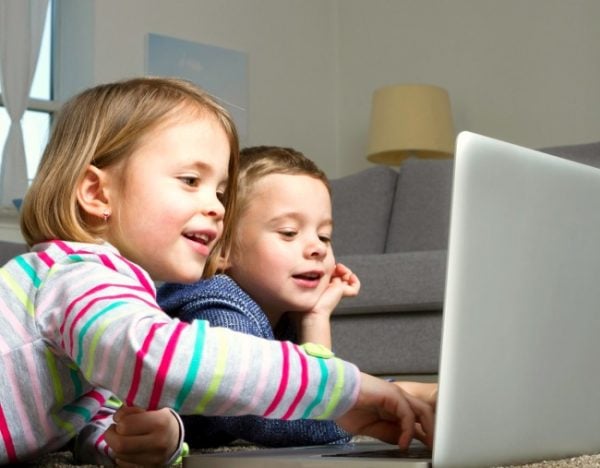Should you give your phone or tablet to your toddler? It’s a question that’s plagued parents with young children in our tech-driven lives. Now, the new and revised ‘Physical Activity and Sedentary Behaviour Guidelines’ released by the Federal Government have come up with an answer not everyone will like.
The official recommendations state that when sedentary, toddlers under the age of two should be given no screen time whatsoever and children aged from two to five should only be given one hour a day in total.
Early childhood expert Tony Okely led the study that largely influenced the new guidelines and said that the health impacts of sedentary screen time were largely negative.
“More screen time is associated with poorer development. . . but we couldn’t find any evidence that could suggest there’s a healthy limit for children under the age of two,” he told Mamamia.
However is this figure realistic? In 2015, Time reported that from 2010 to 2014, the average tablet and smartphone usage for US adults went from just over an hour to nearly five hours a day. So naturally, with our population’s widespread uptake in screen usage, which would by proxy reach children, parents are rightfully questioning whether these health guidelines are lagging behind the times.
To this query, Okely said that first and foremost, “it’s important for parents and educators to acknowledge that these guidelines are not meant in anyway for parents to feel guilty,” he says.

Top Comments
When I was a kid my mother used to tell me off for sitting too close to the TV cause I would get "square eyes".
This would appear to be the 2017 version of that 'old wives tale'.
Glad to see our government departments are spending tax payer's time and money wisely on vitally important projects such as this.